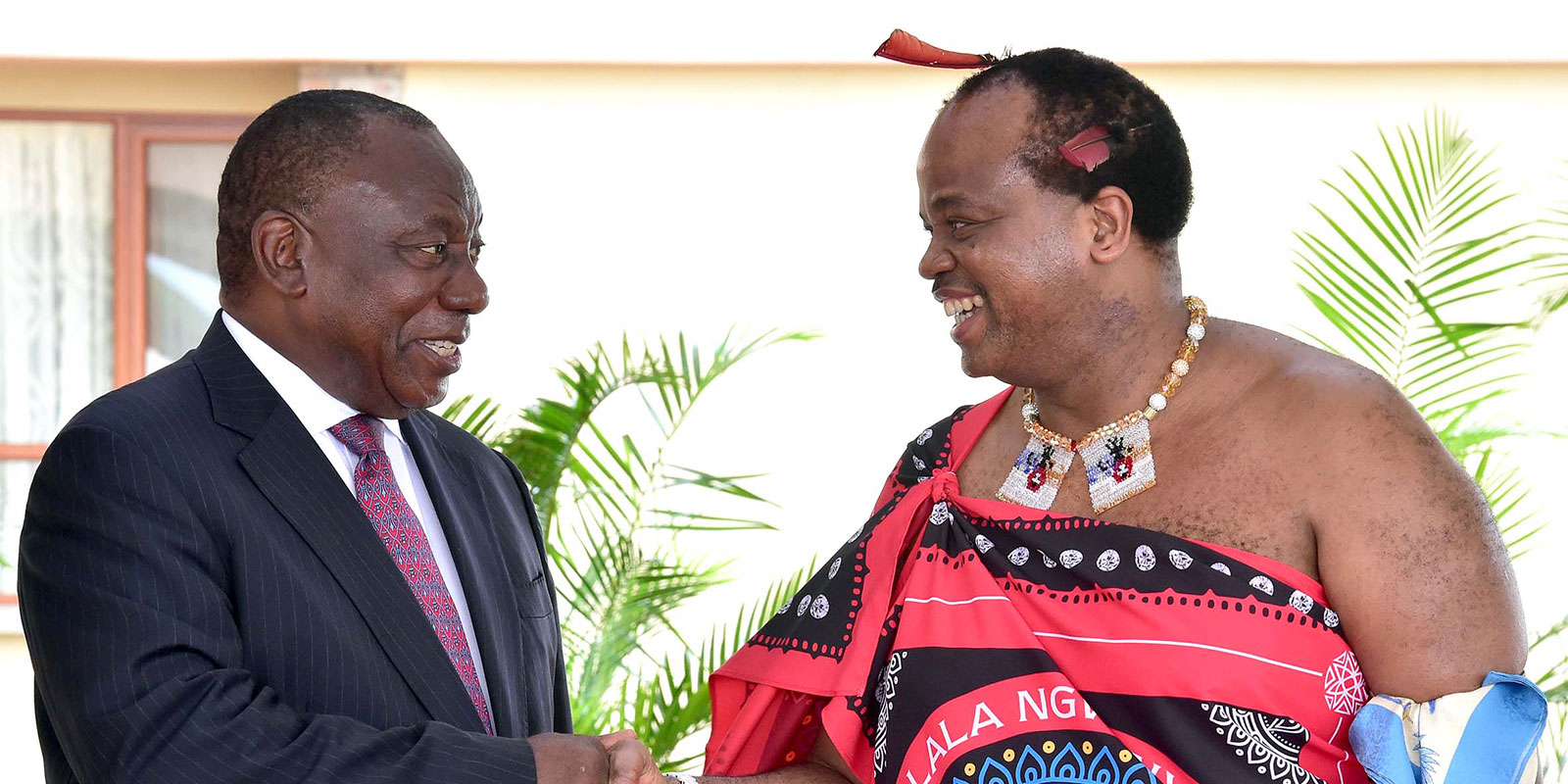It has been over a year since protests erupted in the Kingdom of Eswatini. The unrest was sparked by the death of a university student while in police custody, with many young people airing their grievances about the conduct of the police in the Kingdom. The emphasis of these protests then grew to include a number of different issues facing Eswatini, least of all grievances around issues of governance and the lack of democracy in the Kingdom.
The unrest in Eswatini concerns its neighbours and is on the peace and security agenda of the Southern African Development Community (@SADC_News)
Tweet
While the youth have been at the forefront of these protests, the grievances they express are held by other generations of EmaSwati. Protest action also took place in a number of different areas, both rural and urban, demonstrating the wide reach of the frustrations with the government. The unrest in Eswatini is of concern to the countries in the region and is on the peace and security agenda of the Southern African Development Community (SADC).
SADC has, on more than one occasion, had to intervene militarily in member states. SADC troops have deployed to the Democratic Republic of the Congo and more recently to Mozambique, to deal with an extremist insurgency in the Cabo Delgado region. SADC has also intervened in political crises in Lesotho 5 times. In 2014, political instability in Lesotho led to the military becoming involved, by surrounding the Prime Minister’s residence, police headquarters and shutting down radio stations in the Kingdom, leading to Prime Minister Thabane fleeing to South Africa.
Prime Minister Thabane alleged that a coup had taken place in Lesotho and called on SADC to intervene militarily. However, SADC rejected the claim that a coup had taken place. Instead, SADC appointed a special envoy to Lesotho, Cyril Ramaphosa, the then Deputy President of South Africa, and it deployed an observer mission made up of military and police personal from various member states in order to assess the situation in Lesotho. The outcomes of this latest SADC intervention in Lesotho was an agreement to hold snap elections in 2015, recommendations to better regulate floor-crossing in parliament and reforms to the police and military sectors.
The SADC intervention in Lesotho, whilst preventing the situation from deteriorating further, was not able to bring about lasting political stability in the Kingdom. However, the SADC intervention in Lesotho does demonstrate that the bloc is willing and able to deploy political and military interventions, as may be needed, to prevent and manage conflict. While the circumstances of the SADC intervention in Lesotho are not the same as the current unrest in Eswatini, parallels and lessons can nonetheless be drawn.
If SADC follows a similar course of action it means a Mozambique-type of military intervention in the current unrest in Eswatini is unlikely. This is further supported by SADC’s unwillingness to take military action in Madagascar, in 2009 when a coup took place. Initially SADC threatened military intervention, but then changed its stance and sent an envoy, former president of Mozambique, Joaquim Chissano, to mediate instead. At this point there have not been any calls for SADC military intervention in the Kingdom. However, if the situation on the ground in Eswatini changes, and there is a serious risk of mass atrocities or instability, this may change.
Without the deployment of an observer mission to Eswatini, @SADC_News will find its ability to influence the situation in Eswatini limited
Tweet
Thus far the SADC engagement with Eswatini has followed a similar pattern to the one in Lesotho. SADC sent a fact-finding delegation to Eswatini, before South African President Cyril Ramaphosa, as the Chair of SADC’s Organ Troika, met with King Mswati. Once again SADC was able to produce a ‘breakthrough’, with King Mswati agreeing to hold a national dialogue in the country. However, following the announcement in November 2021, as of July 2022, such a national dialogue has not started. SADC was given the role of drafting the terms of reference for the dialogue, with the initial intention that preparations should take place in the three months following the announcement by President Ramaphosa.
In April 2022, King Mswati pulled Eswatini from the agenda of a meeting of SADC’s Organ Troika, where SADC was set to discuss the country’s national dialogue process. The removal of Eswatini from the agenda of the April 2022 Summit suggests that King Mswati prefers not to have the regional body involved in the ongoing situation in the Kingdom. With little direct engagement in Eswatini and no consistent presence on the ground the likelihood of SADC playing a meaningful role in helping to prevent further conflict in Eswatini seem slim. The apparent lack of formal engagement by the bloc with the government of Eswatini and the country’s various stakeholders suggests that SADC is in some way paralysed and its impact on the situation in the Kingdom is minimal. Although the Ministerial Committee of the Organ (MCO) did convene, the postponement of the much-anticipated 21 August 2022 Extra-Ordinary Summit which was aimed at discussing the situation in Eswatini is indicative of the apparent lack of urgency on SADC’s part to deal with the situation in Eswatini.
In Lesotho, SADC have had an ongoing engagement in the state and appointed a mediation team which maintained SADC’s engagements with the country. However, without the deployment of a similar initiative to Eswatini, which will help SADC to independently monitor and assess the situation and engage the various stakeholders, SADC will find its ability to influence the situation in Eswatini limited.
Katharine Bebington is a Programme Officer in the Research Unit at ACCORD.


